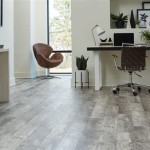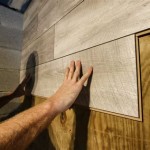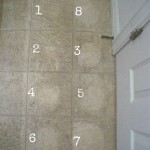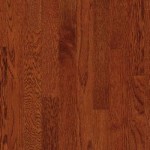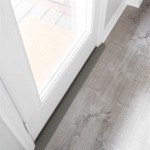Vinyl Plank Flooring on Stairs: Pros and Cons
Vinyl plank flooring has become a popular choice for homeowners due to its durability, affordability, and stylish appearance. But what about using vinyl plank flooring on stairs? While it might seem like an unconventional choice, it offers both advantages and disadvantages. This article examines the pros and cons of installing vinyl plank flooring on stairs, providing a comprehensive understanding of its potential benefits and drawbacks.
Pros of Vinyl Plank Flooring on Stairs
Vinyl plank flooring presents several advantages when used on stairs, making it a compelling option for many homeowners:
1. Durability and Water Resistance
Durability is a key advantage of vinyl plank flooring. It is highly resistant to scratches, dents, and wear and tear, making it a practical choice for high-traffic areas like stairs. Vinyl plank flooring is also waterproof, making it ideal for areas prone to spills or moisture, such as kitchens or bathrooms. This water resistance is particularly beneficial on stairs, where spills are common and cleaning can be challenging.
2. Cost-Effectiveness
Cost-effectiveness is another significant advantage of vinyl plank flooring. It is generally more affordable than other flooring options such as hardwood or tile. This price point is especially valuable when considering the labor costs associated with installing flooring on stairs. Vinyl plank flooring offers a stylish and durable solution without breaking the bank.
3. Easy Installation and Maintenance
Vinyl plank flooring is known for its ease of installation and maintenance. It can be installed over existing flooring, eliminating the need for extensive demolition. Vinyl plank flooring also requires minimal upkeep, with regular sweeping and mopping sufficient to keep it clean. The ease of maintenance makes it particularly appealing for busy households or individuals who prefer low-maintenance flooring.
4. Variety of Styles and Colors
Vinyl plank flooring offers a wide range of styles and colors, allowing homeowners to find a product that perfectly complements their home's aesthetic. From realistic woodgrain patterns to modern geometric designs, there is a vinyl plank option to suit any taste. This variety ensures that homeowners can create a unique and stylish staircase that reflects their personal style.
Cons of Vinyl Plank Flooring on Stairs
While vinyl plank flooring offers numerous benefits, it also has some drawbacks when used on stairs.
1. Potential for Slippery Surfaces
Vinyl plank flooring can be slippery, especially when wet. This is a significant concern on stairs, as it presents a safety hazard, increasing the risk of slips and falls. To mitigate this hazard, homeowners should choose vinyl plank flooring with a textured surface and ensure the stairs are kept clean and dry. Anti-slip mats or runners can also be used to improve traction.
2. Limited Durability on High-Traffic Stairs
While vinyl plank flooring is generally durable, it may be susceptible to wear and tear on high-traffic stairs, particularly those with heavy foot traffic. This is because the constant pressure and friction of foot traffic can lead to dents, scratches, and even the tearing of the vinyl. Carefully selecting a high-quality vinyl plank with a thick wear layer can help to minimize these problems.
3. Can Be Difficult to Install On Stairs
Although vinyl plank flooring is considered easy to install, installing it properly on stairs requires some skill, patience, and attention to detail. The unique layout of stairs requires careful measurements, precise cuts, and proper installation techniques to achieve a seamless and visually appealing finish. If you are not comfortable with DIY projects, it is recommended to hire a professional installer.
4. May Not Be Suitable for All Stair Designs
The suitability of vinyl plank flooring for stairs depends on the stair design. Some stair configurations, such as those with tight curves or intricate details, may be challenging or impossible to cover with vinyl plank flooring. In these cases, alternative flooring options may be more suitable.
By carefully considering the pros and cons discussed above, homeowners can make an informed decision about whether vinyl plank flooring is the right choice for their staircase. If the benefits outweigh the drawbacks, vinyl plank flooring can be a stylish, durable, and cost-effective flooring option for stairs. However, if safety is a primary concern, or if the stair design presents challenges, alternative flooring options may be more appropriate.

Pros And Cons Of Installing Vinyl Flooring On Stairs Lx Hausys

Pros And Cons Of Installing Vinyl Flooring On Stairs

Pros And Cons Of Installing Vinyl Flooring On Stairs Lx Hausys

Pros And Cons Of Installing Vinyl Flooring On Stairs Lx Hausys

Pros And Cons Of Installing Vinyl Flooring On Stairs

Vinyl Flooring On Stairs Pros And Cons Brill

Installing Vinyl Flooring On Stairs Pros And Cons 2024

Installing Vinyl Flooring On Stairs Pros And Cons 2024

Pros And Cons Of Installing Vinyl Flooring On Stairs Lx Hausys

Advantages And Disadvantages Of Vinyl Flooring On Stairs
Related Posts

